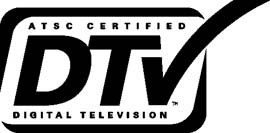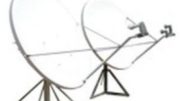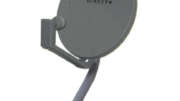Yeah, we’ve all done it. Of all the sins one could commit, typing “DTV” when we really mean “DIRECTV” is probably one of the lesser ones. It’s not going to get you sent straight to the underworld, let’s be honest. But as DIRECTV dealers, the folks at Solid Signal try to walk the line set by our corporate affiliates, the folks with the new blue ball logo next to their names. Just for fun, let’s talk about why the lawyers at DIRECTV don’t want you using those three little letters to talk about their service.
First of all, you can’t copyright an abbreviation.
DTV could stand for anything from “digital television” to “dogs take vitamins.” You’re on shaky legal ground if your company is nothing but a set of initials and you’re trying to protect other people from profiting off your good name. That’s why, for example, ABC television still retains the legal name of “American Broadcasting Company” although it’s been like 5 years since anyone called them that. CBS treads a finer line with their legal name, “CBS Corporation,” but at least it’s just not “CBS.” So obviously DIRECTV’s lawyers do not want anyone profiting from all the good stuff the company does, so they would rather make sure that the proper legal name, DIRECTV, is used at all times.
Probably more important, DTV means something else.
DTV stands for digital television, as part of the US Government’s definition of broadcasting as defined by the American Television Standards Committee. DTV is any terrestrial (that is, from ground-based towers) broadcasting using digital data, not limited to high-definition digital television (HDTV). It’s all digital broadcasting. The distinction was a little more important a decade ago when older, analog TVs without digital tuners were still sold. The DTV logo or one of its variants was required on all televisions that were designed for the new digital broadcast system that went into effect in 2009, and every TV in the US was required to have a digital tuner as of 2007. Those that did carried a logo showing what kinds of digital broadcasts they could show (SDTV, HDTV, or EDTV which was basically widescreen SD.)
Back then, DIRECTV was especially vigilant in making sure that people didn’t use the term “DTV” for their products since all TVs actually had a sticker on them that said “DTV” on them and yet none of them were capable of decoding DIRECTV.
And also, because DIRECTV is a pretty cool name.
You know, someone paid big bucks for an ad agency to create the DIRECTV name, and when you hear it, you understand immediately what’s going on. You’re getting TV, directly from the sky, without a local cable company being involved. Which, honestly you have to agree is pretty cool. I mean, you don’t think about it all the time but a TV signal coming straight to you from 22,000 miles away? And it works like 99.9% of the time? That blows your mind, right?
We’ll know in the next year or so if AT&T plans on keeping the DIRECTV name or if they change it to something like AT&T Entertainment or AT&T TV. Obviously, it’s their call and they’re not going to make that change without a lot of serious thought, considering how well respected the DIRECTV brand is (and their frank admission that it’s a better technology than their U-Verse TV product.) I hope they do, I hope the name stays for a long time. But if not… well it’s still going to be a great TV product whatever they call it. And one thing you can be sure they won’t call it… is DTV.





